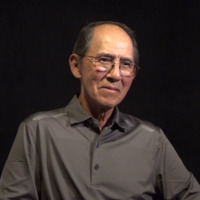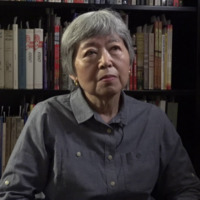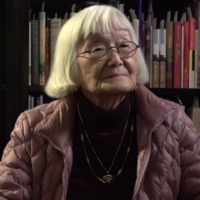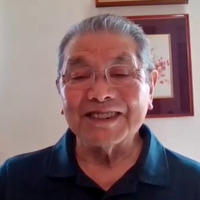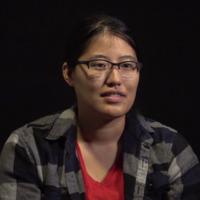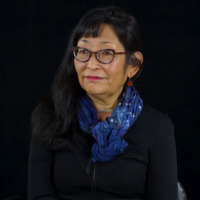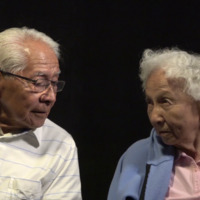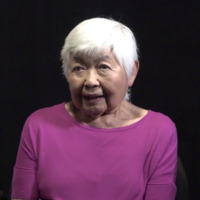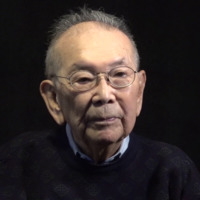JASC Legacy Center Oral History Collection
Title
JASC Legacy Center Oral History Collection
Subject
Japanese Americans--History.
Description
This collection contains oral history interviews from the Japanese American Service Committee (JASC) Legacy Center's holdings. Where available, transcriptions have been included and synced to the recordings to enable full-text searching.
Interviews were recorded at various times, some by JASC staff and some by external partners, often supported by grant funding. See the metadata associated with each interview for full details.
This digital collection will continue to grow as new interviews are recorded, and as additional pre-existing recordings are received by donation or discovered in the physical archives.
The digitization and transcription of many of the recordings in this collection, the recording of interviews between July 2018 and June 2021, and the creation of this publicly accessible digital platform, were funded by a Japanese American Confinements Sites (JACS) grant awarded by the National Park Service, U.S. Department of the Interior. The JASC Legacy Center gratefully acknowledges the financial support received between 2018 and 2021 that enabled this project to succeed.
---
This material is based upon work assisted by a grant from the U.S. Department of the
Interior, National Park Service. Any opinions, findings, and conclusions or recommendations
expressed in this material are those of the author(s) and do not necessarily reflect the views
of the U.S. Department of the Interior.
This material received Federal financial assistance for the preservation and interpretation of
U.S. confinement sites where Japanese Americans were detained during World War II.
Under Title VI of the Civil Rights Act of 1964, Section 504 of the Rehabilitation Act of 1973,
and the Age Discrimination Act of 1975, as amended, the U.S. Department of the Interior
prohibits discrimination on the basis of race, color, national origin, disability or age in its
federally funded assisted projects. If you believe you have been discriminated against in any
program, activity, or facility as described above, or if you desire further information, please
write to:
Office of Equal Opportunity
National Park Service
1849 C Street, NW
Washington, DC 20240
Interviews were recorded at various times, some by JASC staff and some by external partners, often supported by grant funding. See the metadata associated with each interview for full details.
This digital collection will continue to grow as new interviews are recorded, and as additional pre-existing recordings are received by donation or discovered in the physical archives.
The digitization and transcription of many of the recordings in this collection, the recording of interviews between July 2018 and June 2021, and the creation of this publicly accessible digital platform, were funded by a Japanese American Confinements Sites (JACS) grant awarded by the National Park Service, U.S. Department of the Interior. The JASC Legacy Center gratefully acknowledges the financial support received between 2018 and 2021 that enabled this project to succeed.
---
This material is based upon work assisted by a grant from the U.S. Department of the
Interior, National Park Service. Any opinions, findings, and conclusions or recommendations
expressed in this material are those of the author(s) and do not necessarily reflect the views
of the U.S. Department of the Interior.
This material received Federal financial assistance for the preservation and interpretation of
U.S. confinement sites where Japanese Americans were detained during World War II.
Under Title VI of the Civil Rights Act of 1964, Section 504 of the Rehabilitation Act of 1973,
and the Age Discrimination Act of 1975, as amended, the U.S. Department of the Interior
prohibits discrimination on the basis of race, color, national origin, disability or age in its
federally funded assisted projects. If you believe you have been discriminated against in any
program, activity, or facility as described above, or if you desire further information, please
write to:
Office of Equal Opportunity
National Park Service
1849 C Street, NW
Washington, DC 20240
Creator
Japanese American Service Committee (Chicago, Ill.). Legacy Center
Publisher
Japanese American Service Committee (Chicago, Ill.). Legacy Center
Collection Items
Ideno, Kazuo Gene (8/24/2017)
Kazuo Ideno was born in San Francisco, California. His father was born on the island of Shikoku and his mother in California although she was raised and educated in Japan. His family was incarcerated at Crystal City Internment Camp located in Texas.…
Kawamoto, Amy (3/2/2018)
Amy Kawamoto discusses her experiences as a young child in Minidoka concentration camp, and her family’s experience after resettling in Chicago. Mrs. Kawamoto went to participated in a girls club, attended to the Buddhist Temple of Chicago, and later…
Omachi, Chiyoko (3/20/2018)
Chiyoko describes her experiences growing up on Terminal Island. She talks about moving to L.A. right before the Evacuation and her experiences at the school there. Chiyoko describes what camp life and food was like. She discusses leaving the Poston…
Nakamura, Tom (3/16/2021)
Tom Kazumi Nakamura was born in Marysville, California in 1928. Growing up on a peach farm, Tom attended a small school in rural northern California along with his siblings. At the age of 14, Tom and his family were forced to sell their possessions…
Watanabe, Anne (8/19/2017)
Anne Watanabe is a Japanese Canadian Yonsei and Shin-Issei born in the Midwest and raised on the East Coast and in Canada. She shares her experiences with intergenerational trauma and healing. Anne discusses the challenges of younger generations…
Ashikawa, Lori (3/31/2021)
Lori Ashikawa is a sansei born in Oakland, California and raised in Southern California. Being raised by a well-educated mother who experienced incarceration in her young adulthood, Lori grew up in an environment that encouraged assimilation both…
Aragaki, June (9/6/2018)
June Aragaki is a Nisei born in 1921 in Stockton California. She speaks about growing up in rural California, where her parents started as migrant farmers and her siblings eventually ran a small restaurant. Her whole family was interned in Rohwer,…
Arakawa, Paul and Kimura, Susie (9/15/2017)
Paul Arakawa was born in San Diego, California and grew up in town. Susie Kimura was born in Newcastle, California but grew up on a fruit farm in Auburn, a more rural upbringing. In this interview they discuss their adolescence, where they were when…
Chikahisa, Frances (9/16/2017)
Frances Chikahisa was born and raised in Los Angeles before being incarcerated at Santa Anita and then Rohwer. In adulthood she pursued a career as a social work psycho-therapist, eventually moving to Chicago and later Seattle to be closer to her…
Chikaraishi, Ben (10/31/2017)
Community leader Ben Chikaraishi describes his family’s experiences in Rohwer, the WRA, and resettlement in Chicago. He shares his career trajectory as an optometrist, from working in the camp as an assistant, to his work in Chicago while in school,…

